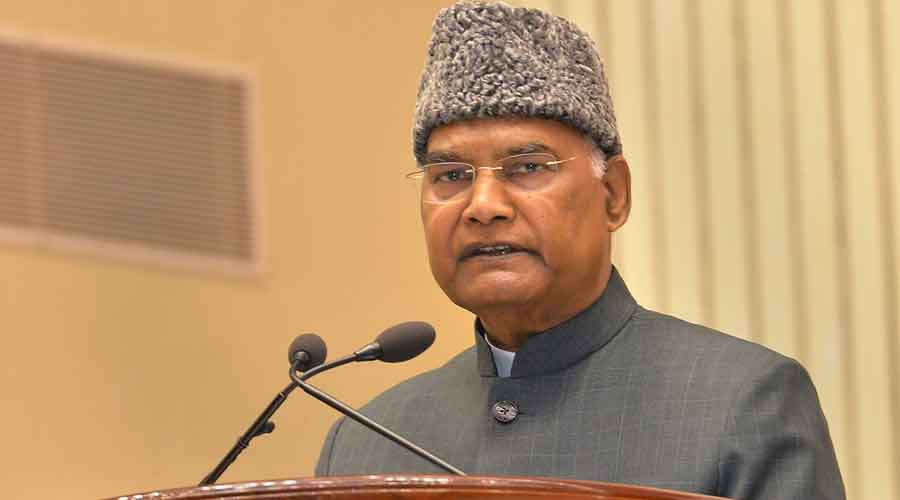President Ram Nath Kovind on Friday said “non-discrimination” was the first condition for absolute respect for human dignity and it should be our collective responsibility to overcome such prejudices, which hindered the progress of humanity.
He made the remark while addressing an event on the 73rd Human Rights Day at the Vigyan Bhavan here.
Kovind also expressed concern over the degradation of environment, which ought to be stemmed and it was time Mother Nature was saved from the worst effects of industrialisation.
“Equality is the very soul of human rights. While non-discrimination is the first condition for absolute respect for human dignity, the world is beset with countless prejudices. They, unfortunately, hinder the full realisation of individuals’ potential, and thus are not in the interest of society as a whole. Human Rights Day is the ideal occasion for us to ponder collectively and find ways to overcome such prejudices that only hinder the progress of humanity,” Kovind said.
On this day, the world should also debate and discuss the right to a healthy environment and climate justice, the President added.
“The degradation of nature is leading to irreversible changes in climate and we are already witnessing its harmful impact. The world is waking up to the harsh reality, but it is yet to build the resolve to make a decisive change,” the President said.
Human Rights Day commemorates the United Nations General Assembly’s adoption of the Universal Declaration of Human Rights in 1948, .
The President reminded that the Universal Declaration of Human Rights spelt out a series of rights and freedoms every single human being was entitled to.
“These are inalienable rights, dependent solely on the fact that each person belongs to humanity, irrespective of ethnicity, gender, nationality, religion, language and other divisions. With the Declaration, the global community made a formal recognition of basic human dignity though it has been part of our spiritual traditions for millennia,” Kovind said.
Referring to the pandemic, the President said the government institutions tried their best to respond to a situation for which no amount of preparation could have been sufficient.
He complimented the National Human Rights Commission for its deep concern for the rights of the vulnerable and marginalised sections of society affected by the pandemic by issuing several advisories that helped in improving our response.
Earlier, Justice Arun Mishra, chairperson of NHRC, said the State was bound to provide facilities to reach the minimum standards of health, education and economic opportunities. Each individual must share power, material, resources and opportunities without discrimination to achieve a harmonious society. Tolerance and inclusion are non-negotiable human rights, he added.
He said it was necessary to provide remedy to the victims of unfair economic structure and business-related human rights violations. Besides, all individuals have the bare minimum right to a safe, clean and healthy environment. He said our fundamental duty was to proactively save the environment, forest, flora and fauna to strengthen our National Climatic Policy.
The NHRC chairperson said freedom of speech was the most cherished value and fundamental right to be protected. However, the extent of freedom of cyber space was a matter of debate as it had fuelled grave apprehension of its misuse, violating the sovereignty, integrity of the country, public order, decency and morality.
Justice Mishra said the rule of law required the delivery of speedy justice. “We must avoid imprisonment of a suspect without trial. There is no room for fake encounters. The government is accountable to its people. The functioning of the commission is of bridging gaps, ironing out the creases and helping in good governance by providing motions,” he added.
Shombi Sharp, UN resident coordinator in India, said India was a strong champion of human rights, which was reflected in the strong democratic institutions it had set up. He also read out the message of UN secretary-general Antonio Guterres on the Human Rights Day. The UN secretary-general in his message said the United Nations “will continue to work for justice, equality, dignity and human rights for all”.











